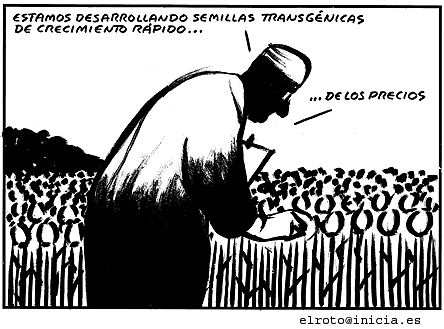
These are the front lines of the genetics revolution, the practical applications of the truly amazing discoveries of the past two decades. Here are miracles and wonders that could help feed an ever-more crowded world: extra-starch potatoes, coffee beans grown decaf right on the vine, low-sugar strawberries. Wonder Bread-quality wheat courtesy a plant with extra gluten built right in. Super high-protein grains that could be a boon to the developing world. And cotton and potatoes with herbicide-producing genes that could eliminate the need for toxic sprays.
Here are dragons: Activists worry that plants with an innate herbicide might breed a new generation of resistant "super insects." Or that man-made seeds might cross-pollinate with other plant species, with unknown and potentially devastating results. Already, early studies show Monsanto's highly popular Bt corn could prove devastating to Monarch butterflies.
Then there's the matter of intellectual property. To protect its billion-dollar investment, Monsanto hopes to introduce an elegantly malevolent technology, called "Terminator," that is a set of genetic instructions that render a seed sterile after just one planting -- thus enforcing the company's copyright.
From a biotech standpoint, this is a marvel, what one scientist has called "the most intricate application of genetic engineering to date." From a human standpoint, it's a potential time bomb. The UN has already expressed concern that Terminator seeds could force farmers into total dependence on seed companies. Others are worried about possible cross-pollination that could render other plants sterile. Meanwhile, the U.S. Army War College is reportedly intrigued about the possibilities of technologies that could tell plants to commit suicide on demand. Which means the only certain thing is that there's a crop dustup in our future.
Via TIME

- Apuntes Transgénicos en:
- Transgénicos desde el punto de vista ecologista en:

- PLANTAS Y ALIMENTOS TRANSGÉNICOS en:
- Lista de Productos Trangénicos en:







0 comentarios:
Publicar un comentario